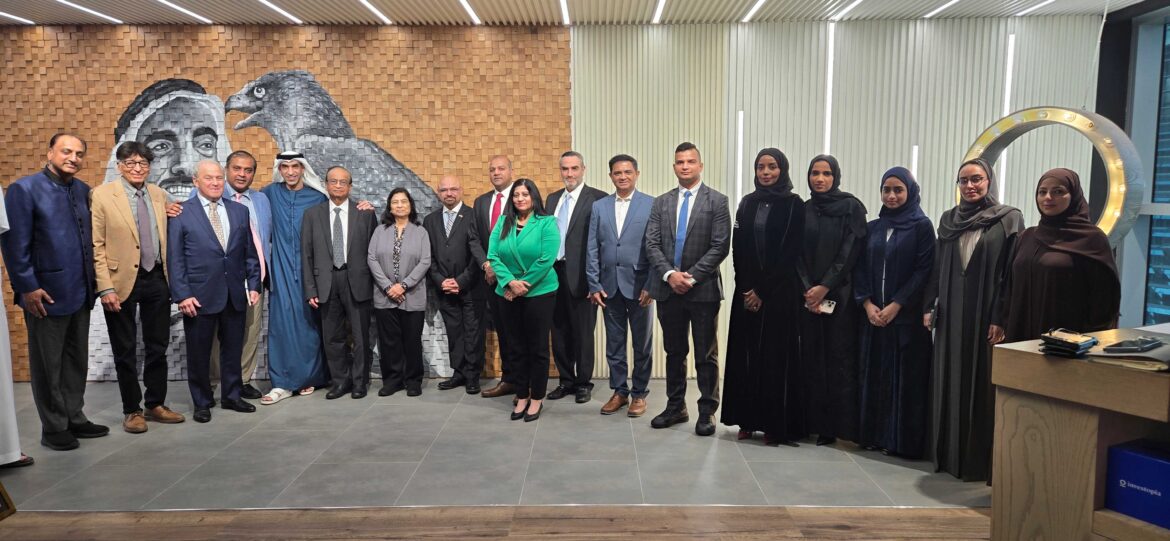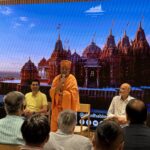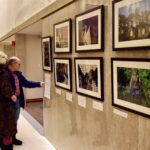From January 26 to February 1, 2025, I had the extraordinary privilege of joining a distinguished Indian American Delegation to the United Arab Emirates (UAE) and Bahrain, organized by the American Jewish Committee (AJC). This transformative journey reinforced the values of peace, coexistence, and religious tolerance deeply embedded in the societal fabric of these nations.
We extend heartfelt gratitude to Hon. Alia Alsuwaidi, Deputy Chief of Mission of the UAE, and Jawaher Almheiri, Head of Economic Policy at the UAE Embassy, as well as First Secretary Hind Al-Rumaihi and Second Secretary Hasan Abdulaal of Bahrain, for their insightful pre-departure briefings. These discussions reinforced the UAE’s and Bahrain’s unwavering commitment to diversity, religious freedom, and economic and strategic cooperation with both the U.S. and India. Their dedication to the Abraham Accords and fostering peace in the Middle East was evident throughout our engagements.
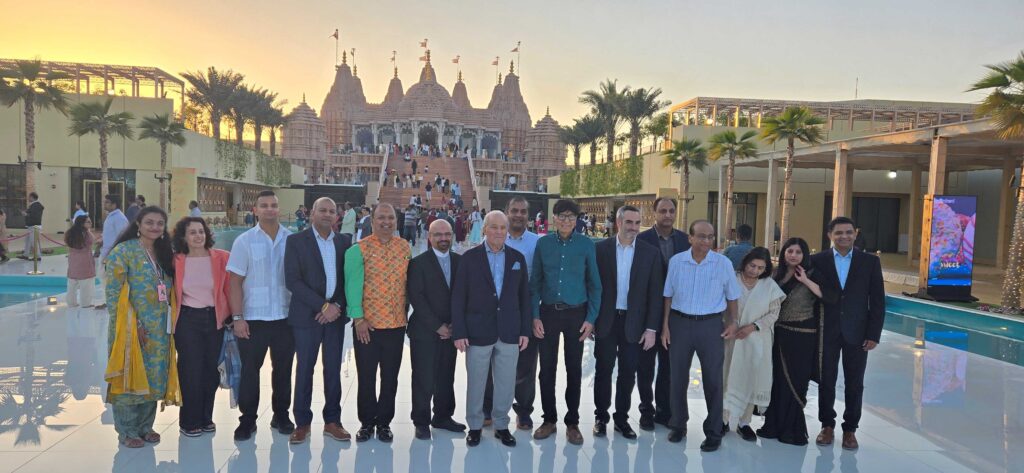
We deeply appreciate our dear friend Nissim Reuben, Assistant Director of AJC’s Asia Pacific Institute, for conceptualizing and organizing this incredible experience, as well as Bob Pecker, Chair of AJC Asia Pacific Institute, who co-led our delegation alongside Indian American community leader Dr. Bharat Barai and Ambassador (Retd.) Marc Sievers, Director of AJC Abu Dhabi.
A Model of Inclusivity and Religious Harmony
One of the most striking aspects of our visit was witnessing firsthand the commitment of the UAE and Bahrain to religious tolerance and interfaith dialogue. These nations have moved beyond symbolic gestures to create environments where diverse religious and ethnic communities coexist in harmony and mutual respect.
In Abu Dhabi, we visited the Sheikh Zayed Grand Mosque, an architectural marvel that welcomes visitors of all faiths. As one of the UAE’s most visited landmarks, receiving nearly five million visitors annually, it stands as a testament to Sheikh Zayed bin Sultan Al Nahyan’s vision of promoting interfaith dialogue and cultural exchange.
Another momentous occasion was visiting the newly constructed BAPS Hindu Temple, a landmark of religious inclusivity in the Gulf region. Hindu devotees expressed their deep gratitude for the generosity of His Highness Sheikh Mohamed bin Zayed Al Nahyan, who provided land for the temple free of charge, underscoring the UAE’s dedication to religious freedom and cultural diversity.
Perhaps the most profound experience was stepping into the Abrahamic Family House, a groundbreaking interfaith complex housing a mosque, a church, and a synagogue. This global beacon of peace and unity fosters cultural exchange and interfaith collaboration, drawing thousands of visitors eager to understand and appreciate different faith traditions.
In Bahrain, we met faith leaders at the Al-Fateh Grand Mosque in Manama, a magnificent structure reflecting Bahrain’s commitment to religious inclusivity. Housing over 7,000 books, the mosque’s library exemplifies Bahrain’s dedication to intellectual and religious scholarship. We had the distinct honor of meeting H.E. Ambassador Shaikh Abdulla bin Ali bin Khalifa Al Khalifa, Director General of Bilateral Relations at Bahrain’s Ministry of Foreign Affairs. Our discussions focused on strengthening the historic and strategic ties between India, the U.S., and Bahrain, emphasizing the contributions of Bahrain’s vibrant Indian community, which makes up nearly 25 per cent of its population.
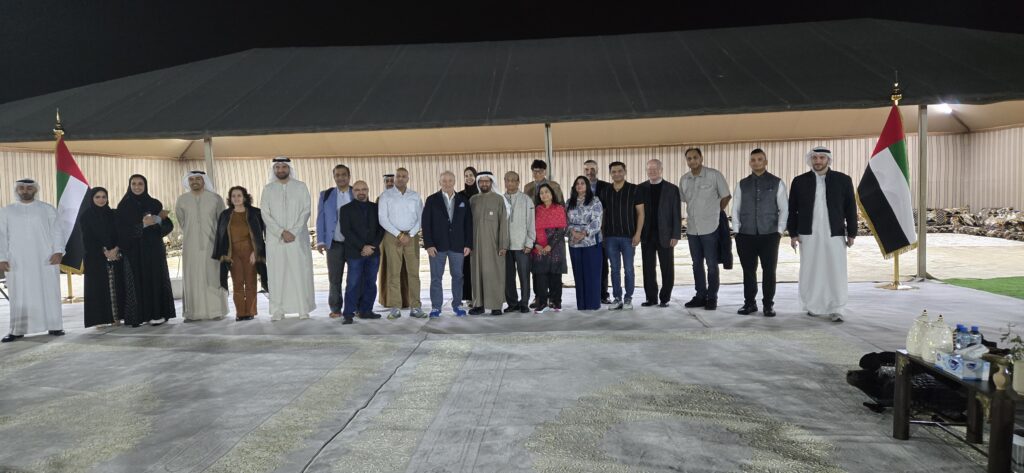
Strengthening Economic and Strategic Ties
Beyond religious harmony, this delegation presented an unparalleled opportunity for economic diplomacy. The UAE and Bahrain are global leaders in commerce, technology, healthcare, and investment. Our delegation engaged in meaningful discussions with influential entities, paving the way for potential collaborations.
The UAE has made significant strides in healthcare infrastructure. A decade ago, Emirati patients frequently sought treatment abroad due to a lack of specialized services at home. Today, the UAE boasts world-class medical facilities, attracting professionals and patients globally. With institutions like Cleveland Clinic Abu Dhabi, Sheikh Shakhbout Medical City, and the Mohammed Bin Rashid University of Medicine and Health Sciences, the UAE is emerging as a hub for medical research and innovation. Our delegation explored possibilities for collaboration between Indian American medical professionals and Emirati institutions to enhance healthcare access and knowledge exchange.
In Bahrain, we engaged with business leaders at the Bahrain Economic Development Board (EDB), discussing investment opportunities and economic diversification. Bahrain has positioned itself as a financial and technology hub, offering an attractive business environment. The country has undertaken substantial regulatory reforms, making it a preferred destination for startups and investors. With a strong Indian presence in sectors such as banking, trade, and healthcare, there is significant potential for expanded collaboration between Indian American entrepreneurs and Bahraini enterprises.
The Abraham Accords and a Vision for Regional Peace
A key highlight of our discussions was the impact of the Abraham Accords on regional stability and cooperation. The Accords have reshaped the geopolitical landscape, fostering greater collaboration between Israel and its Arab neighbors, including the UAE and Bahrain. The economic benefits of these agreements are evident, with increasing trade, technological exchange, and diplomatic engagement. Our delegation was privileged to meet with key officials involved in these peace-building efforts, learning about their vision for a prosperous and stable Middle East.
We also met with representatives from the Jewish communities in both countries. In Bahrain, the historic Jewish community, one of the oldest in the Gulf, shared their experiences of coexisting in a predominantly Muslim society while maintaining their religious and cultural traditions. Similarly, in the UAE, we visited the Jewish Council of the Emirates, witnessing firsthand the remarkable progress made in religious inclusivity and community building.
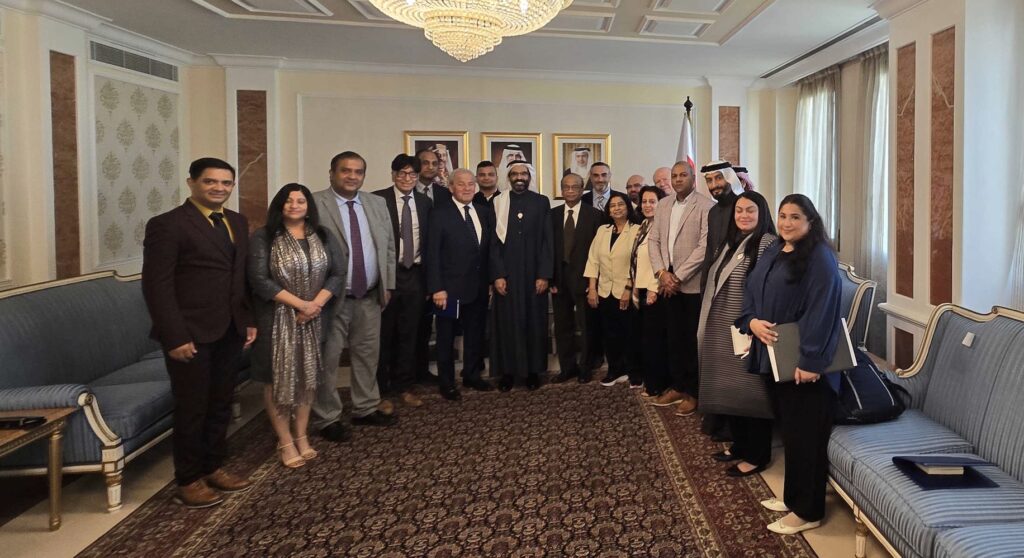
A Profound Cultural Exchange
Cultural diplomacy played a central role in our visit. The hospitality and warmth extended to us by Emirati and Bahraini hosts highlighted the strong cultural ties between India and the Gulf. Indian expatriates have played a crucial role in the development of these nations, contributing to various sectors, including business, healthcare, and infrastructure.
One of the most memorable cultural experiences was our visit to the Louvre Abu Dhabi, an architectural masterpiece that embodies the UAE’s vision of being a global cultural hub. The museum’s diverse collection, spanning civilizations and artistic traditions, symbolizes the UAE’s commitment to fostering cultural exchange and global dialogue.
In Bahrain, we explored the historic Bab Al Bahrain and Manama Souq, immersing ourselves in the rich history and vibrant marketplace culture. The exchange of ideas, traditions, and experiences during our visit reinforced the shared heritage and enduring bonds between our communities.
Conclusion
Our journey to the UAE and Bahrain under the leadership of the American Jewish Committee was a profound experience that deepened our understanding of interfaith harmony, economic collaboration, and cultural diplomacy. The UAE and Bahrain have set an inspiring example of religious inclusivity and peaceful coexistence, demonstrating that diversity can be a source of strength rather than division.
As we reflect on this transformative experience, we remain committed to fostering bridges between communities, strengthening partnerships, and advocating for peace and cooperation. The lessons learned from this delegation will continue to inspire us in our collective efforts to build a more inclusive and harmonious world.
Disclaimer: The opinions and views expressed in this article/column are those of the author(s) and do not necessarily reflect the views or positions of South Asian Herald.


